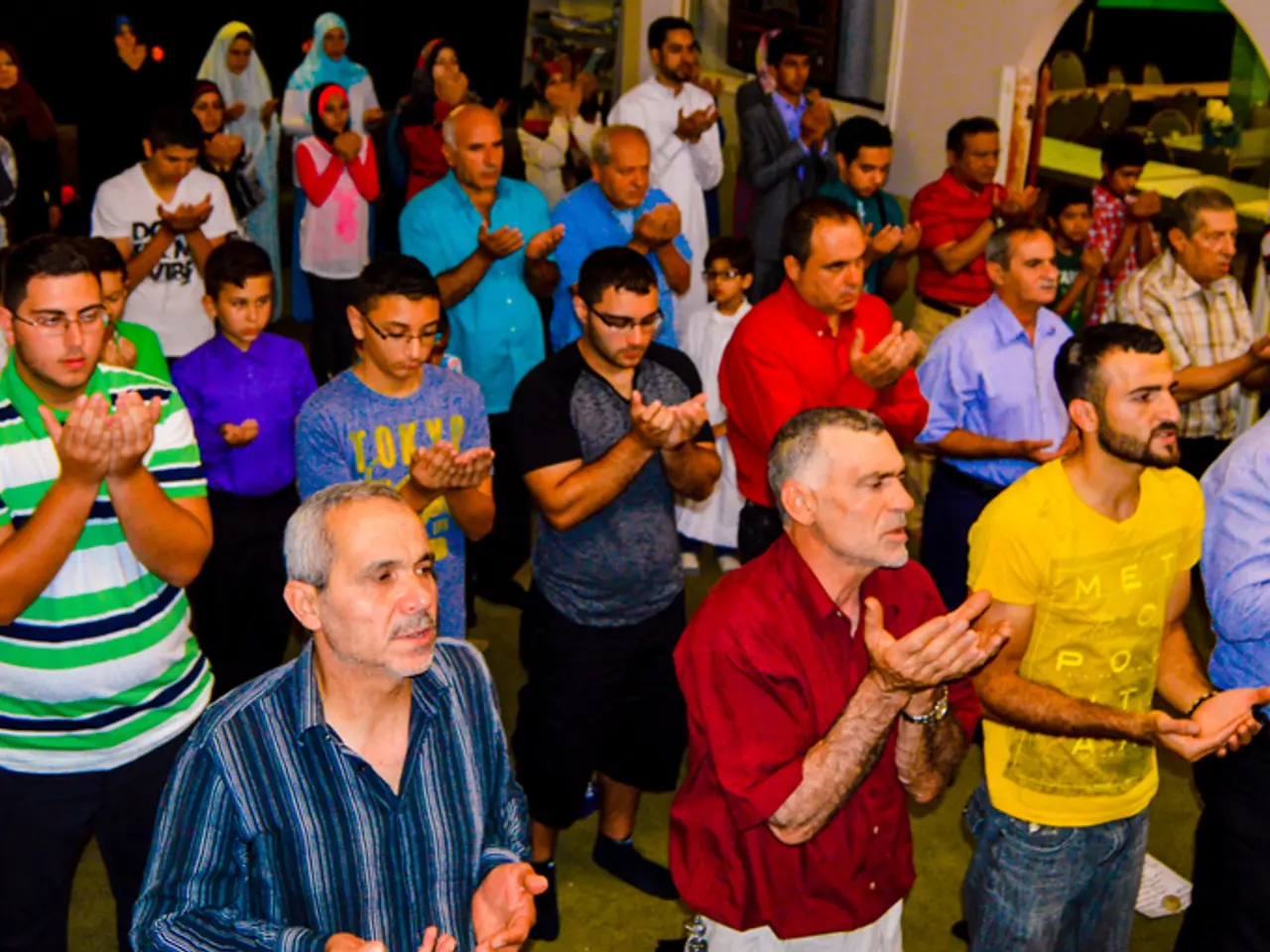Individual in Pakistan accused of blasphemy due to Facebook publication
Rowdy Revamp:
A man in Pakistan, Arsalan Gill, was nabbed by federal authorities last week based on questionable blasphemy charges involving materials linked to his Facebook account, family sources claim. The 24-year-old Catholic resident of Mughalpura, Lahore, was seized on March 17, after a workday as a sweeper, according to his brother, Suleman Gill.
Being an impoverished family, they were left in shock when an FIA officer informed them late at night that their son was arrested under blasphemy allegations. They were not permitted to meet him that night, Suleman Gill said.
"We inquired about the accusation from him while we managed to meet him briefly the next morning," Gill explained to Christian Daily International-Morning Star News. "Arsalan divulged that unknown persons had added him to two Facebook groups without his knowledge, and he had no clue about the content that was shared on those platforms."
The FIA indicted Arsalan Gill under multiple provisions of Pakistan's commonly misused blasphemy law, including Section 295-C, which mandates capital punishment, and Section 11 of the Pakistan Electronic Crimes Act 2016, which can lead to seven years imprisonment for online activities that promote religious, sectarian, or racial hatred.
Rights activists suspect that the destitute Christian was ensnared by a "blasphemy-for-profit" syndicate that reportedly ensnares numerous innocent individuals, including Christians, in fraudulent blasphemy cases through deceitful techniques like honey traps and pornographic websites.
"The modus operandi remains consistent across all cases filed by the FIA's Anti-Blasphemy Unit," said lawyer Lazar Allah Rakha, who represents several falsely accused individuals. "This unit appears to be collaborating with Islamic lawyers and activists to entrap innocent youth in baseless blasphemy charges, primarily for financial gain and defending the gross misuse of the blasphemy laws for other vested interests."
Suleman Gill asserted that their family couldn't afford legal representation for his brother and appealed to Christian groups for aid.
"My father works as a daily laborer, while Arsalan and I make ends meet as sweepers," he said. "We rent a quarter and barely manage our living expenses in such circumstances; we currently have no idea how we'll pursue a legal course of action for my brother's release."
In February, the Islamabad High Court recommended the Pakistani government establish a commission to investigate possible collusion between the FIA and Islamic clerics that has reportedly ensnared over 400 innocent individuals, including Christians, in a surge of unfounded blasphemy cases during the past two years.
The commission, ordered by Justice Ejaz Ishaq Khan, should consist of a retired judge of the high court or the Supreme Court, a retired senior officer of the FIA, an enlightened and religious scholar renowned for philanthropic work, and a senior IT expert to assist the commission members in the complex technical aspects of the case.
The cabinet secretary was directed to submit a summary for cabinet consideration, and the additional attorney general was ordered to present the cabinet's decision in court before the next hearing.
In response to petitions filed by families of over 100 individuals the FIA has accused of online blasphemy, the court expressed frustration with the government's slow and incomplete response. The case has significant public interest, the court noted, and viewers can watch proceedings live as arrangements for online streaming have been made.
Pakistan ranked eighth on Open Doors' 2025 World Watch List, signifying one of the most challenging countries for Christians due to severe persecution linked to blasphemy laws and other religious intolerance.
Published in: Evangelical Focus - world - Christian in Pakistan charged with blasphemy for Facebook post
Shady Snoop:
An alarming trend in Pakistan involves the widespread abuse of blasphemy laws, particularly targeting religious minorities like Christians. Here are some key details illustrating the extent and nature of this misuse:
- Since 1987, there have been at least 2,793 recorded blasphemy accusations in Pakistan, with about 6% of these individuals being Christians (despite Christians accounting for a tiny fraction of the Muslim-majority population).
- In the last four years, the number of blasphemy accusations has soared dramatically, with at least 475 cases filed in 2024 alone, compared to just 11 cases in 2020 and 9 cases in 2021.
- Blasphemy laws have been weaponized to fuel religious intolerance and discriminate against minorities, including Christians, as well as Ahmadis and Hindus.
- False accusations are frequently exploited for personal profit, such as seizing land or settling personal scores. Tragically, this leads to severe human rights abuses, including extrajudicial killings and displacement.
- The Federal Investigation Agency (FIA) plays a role in this problem, especially through its National Cyber Crime Investigation Agency (NCCIA), which handles thousands of inquiries, including those relating to blasphemy-related charges under the Prevention of Electronic Crimes Act (PECA). In 2025, over 8,357 inquiries were lodged, and 670 cases were filed under PECA. The broad definitions and sweeping powers under PECA have stirred concerns regarding misuse to target journalists, activists, and minorities, further exacerbating the impact of blasphemy accusations and impeding freedom of expression.
- Life remains perilous for those accused, who often face limited protection or recourse from the government.
"The misuse of blasphemy laws in Pakistan, particularly against religious minorities like Christians, has been highlighted in the general-news realm, as illustrated by the case of Arsalan Gill. This alarming trend has led to a significant number of unfounded charges, with Christians, despite being a minor population, accounting for about 6% of the recorded blasphemy accusations since 1987."
"In the context of politics and crime-and-justice, the Federal Investigation Agency (FIA) and its National Cyber Crime Investigation Agency (NCCIA) have drawn criticism for their role in handling blasphemy-related charges under the Prevention of Electronic Crimes Act (PECA). The broad definitions and sweeping powers under PECA have raised concerns about misuse, especially towards journalists, activists, and minorities, further impeding freedom of expression and exacerbating the impact of blasphemy accusations."





